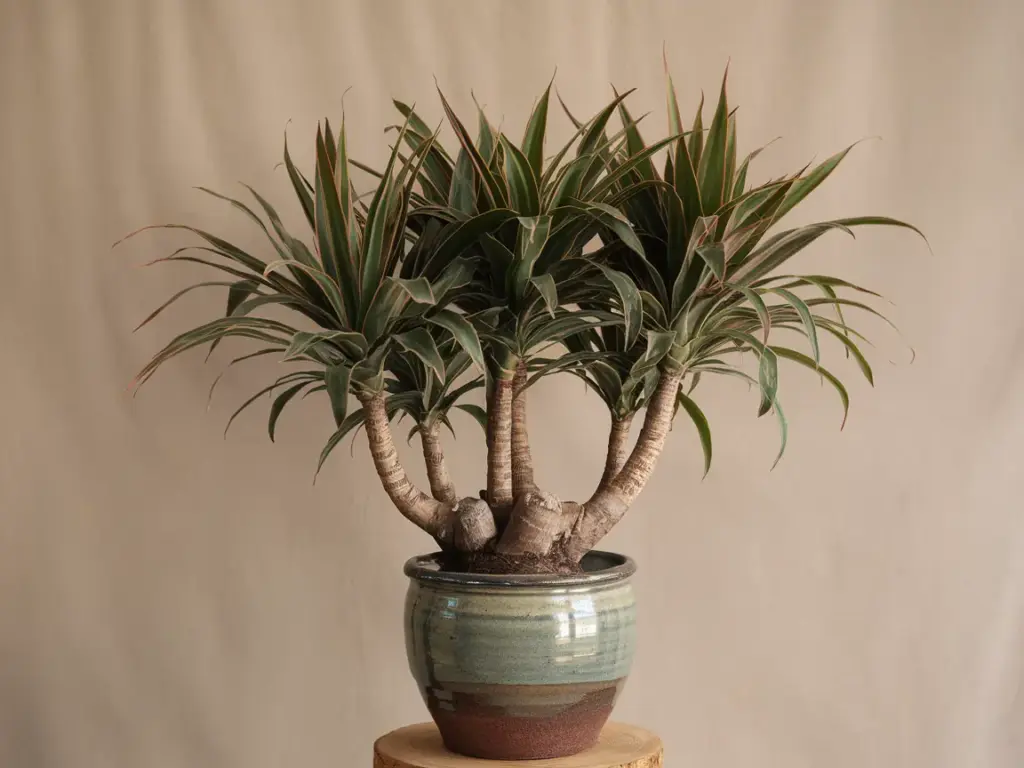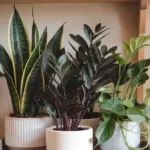Soil and Potting Guide

After killing two dracaenas with poor soil choices (oops!), I’ve become somewhat obsessed with creating the perfect potting environment. Let me share what I’ve learned about getting the soil mix just right for these tropical beauties.
The Perfect Potting Mix Recipe
Through lots of experimenting, I’ve developed what I call my golden ratio for dracaena soil:
- 2 parts quality potting soil
- 1 part perlite or pumice
- 1 part orchid bark
- 1/2 part activated charcoal (my secret weapon!)
This mix provides the perfect balance of moisture retention and drainage. Trust me, your dragon tree’s roots will thank you! I also add a handful of worm castings for slow-release nutrients.
Timing Your Repotting Right
The question I get asked most often is: “When should I repot my dracaena?” Here’s what I’ve learned:
- Repot every 2-3 years
- Spring is the ideal season for repotting
- Look for roots peeking through drainage holes
- Only size up pots by 1-2 inches max
- Never repot a stressed plant
You’ll know it’s time when growth slows down and water runs straight through the pot without being absorbed.
Choosing the Perfect Container
Let me tell you about my container disaster story – I once used a beautiful pot without drainage holes. Big mistake! Here’s what I now look for in the perfect dracaena container:
- Multiple drainage holes
- Ceramic or plastic material (both work great!)
- Sturdy enough to support tall growth
- 1-2 inches larger than the current root ball
- Light colored pots for heat-sensitive varieties
Root Care Essentials
Taking care of dracaena roots is like being a plant dentist – prevention is better than cure! Here’s my root care routine:
- Inspect roots during repotting
- Trim any dark or mushy roots
- Gently tease apart root-bound plants
- Dust roots with cinnamon as a natural fungicide
- Never bury the stem deeper than before
Creating Superior Drainage
After battling root rot early in my plant journey, I’ve become a drainage enthusiast (yes, that’s a thing!). Here’s my foolproof drainage system:
- Add a layer of orchid bark at the bottom
- Mix in plenty of perlite throughout
- Use a catch tray with pebbles
- Create air pockets with chunky materials
- Ensure pots sit slightly elevated
I even drill extra drainage holes in plastic pots – you can never have too much drainage with dracaenas!
Ready to supercharge your dracaena’s growth? In our next section, we’ll explore the world of feeding and fertilization. You won’t believe the difference the right nutrients can make – I’m talking about leaves twice the size and colors that pop! Plus, I’ll share my seasonal feeding schedule that transformed my lackluster plants into absolute showstoppers. Click the next button below to unlock the secrets of proper dracaena nutrition.









GIPHY App Key not set. Please check settings